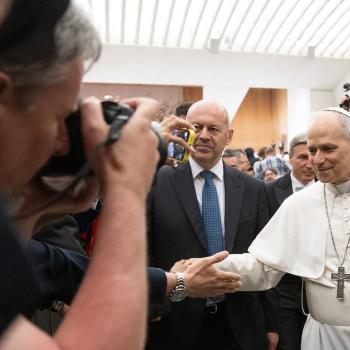It does sound like a strange and impossible dream. But, then as now, dreaming is essential. In a world confronted with so much threat and destruction, a dream for a better world is a necessity. Dreaming is also a sign of being alive. Only those who are able to dream have something worthwhile to offer to their society. Yet dreaming should never remain just a dream; on the contrary, it must be made manifest, against all the odds. However, the question remains, how do we go about realizing the dream?
From the text we can hear the prophet's distinct admonition regarding the matter. All things predicted will come into existence, according to Isaiah, only when "the world is full with the knowledge of God ..." (v. 9). We need to notice that the term "knowledge of God" appears more than once in the text. In verse 2 it is used along with "fear of God"; both indicate the conditions required for a just and peaceful society. So the message we hear from Isaiah is convincing; it draws our attention to God, calling people to make God the focus of their attention and life. Nothing is going to be effective if God is left out of the world's set-up.
The world will come to nothing but devastation and chaos without God. Just as in the story of the Tower of Babel, all human efforts finally come to an end with a big flop because the city is built without and outside God (Genesis 11). Actually the biblical writers use various expressions to say very emphatically that the God factor is the most important element in the make-up of the universe.
Look at Isaiah 2:2-5, which says, "... when the mountain of God's temple will be highest among all ..." The prophet is saying again that only when the centrality of God is affirmed, specifically within human society, can peace prevail. The God factor becomes the main prerequisite for real transformation to take place. Yes, any human efforts at all, including those related to peace and reconciliation, will be effective only when people have reached the point of realization and affirmation of God's supreme power over the whole of creation.
In short, we can say that one of the most essential points that Isaiah is trying to drive home to us is about the importance of God in creation and that this needs to be restored. This is the main source for change and transformation. For by affirming God's centrality, we are at the same time acknowledging our humanity and limitations. This should prevent us from trying to be like God, for when we have behaved like the builders of Babel it has always caused much ruin and great devastation.
This brings us to the next part of this study. The story of paradise lost is the story of human pride, greed, and hunger for power to dominate. In the words used by one of the Genesis writers (the Yahwist) it is indeed the story of human beings exceeding their humanness and trying to become like God. Arrogance and selfish ambition bring them to compete with God for supremacy and total power. Peace is disturbed by human pride as they strive to become like God.
In this line of thought, we can say that paradise will be restored only when men and women repent from their self-centeredness and become more God-centered. Paradise will be recovered when men and women return to their God-given destiny of being humans created in the image of God (Gen. 1:26-28), thus carrying the responsibility of representing God in the world and not striving to become God. For the term "image of God" connotes specifically the ethical responsibility intended for men and women. In other words, being created in the image of God, human beings are called to reflect through their very presence, their work and deeds, the good, just, peaceful, loving, and caring nature of God.
The loving face of God must be reflected through the life and work of those who are God's image, and who are real men and women. We cannot afford to do otherwise, for forms of injustice, inequality, discrimination, violation of rights, and evil practices, which bring sufferings and destruction to others, are contrary to our calling. This defines the basic direction toward the real peace and wellbeing of the whole universe. Being images of God also means carrying the responsibility of forgiving and asking forgiveness where wrongs are committed, and building bridges in the places where relationships are severed.
The call to build peace and reconciliation is the call to repentance, the summons from God that we may be true once again to our destiny of being images of God in the world and to work it out in real life.
Margaretha Hendriks-Ririmasse of the Protestant Church in the Moluccas is dean of the Theological Faculty of the Indonesian Christian University in the Moluccas, and teaches Old Testament subjects. She is also vice moderator of the WCC central committee.
This meditation is reprinted with permission from Imagine: Peace .... Bible Meditations and Worship Resources for Advent, produced by the World Council of Churches in partnership with Feautor and Red Crearte.




